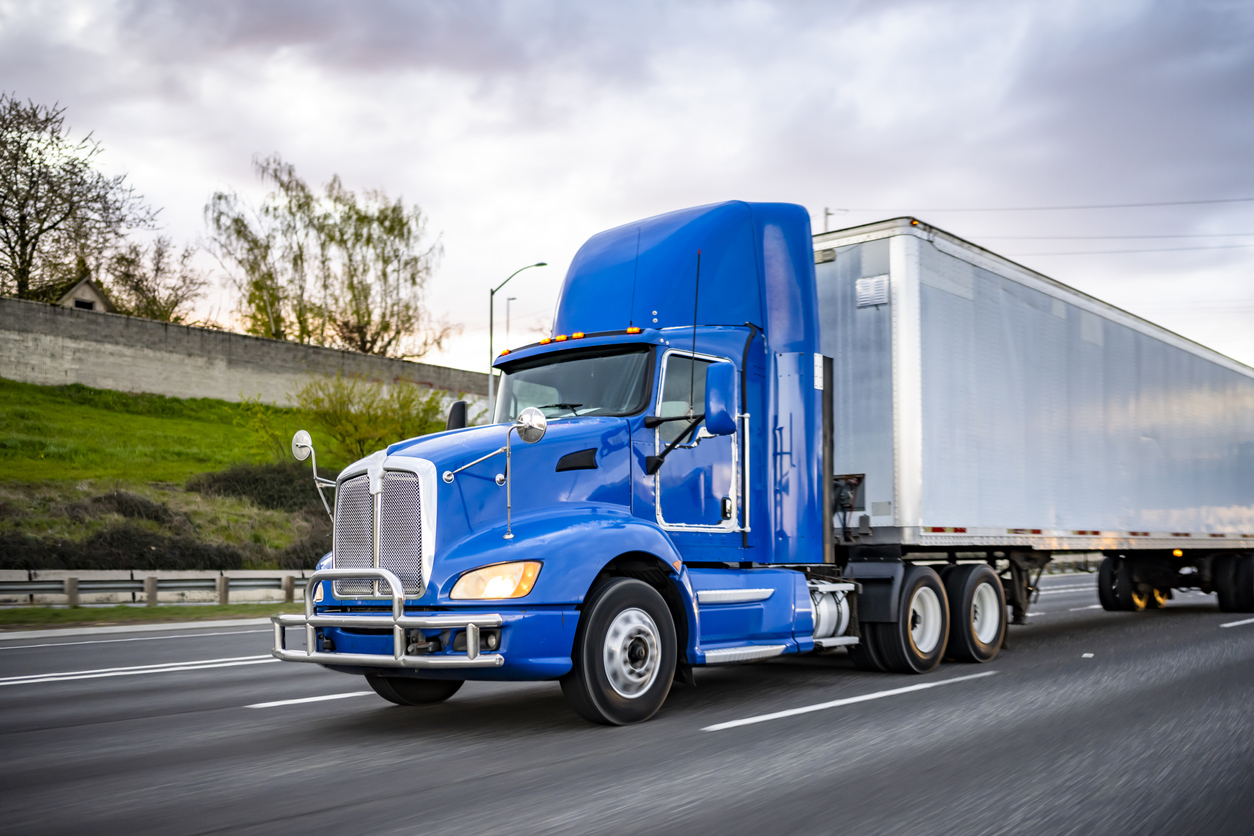
Generally, a truck is considered a commercial vehicle when it exceeds a specific weight or is used to transport goods or people. Federal law and the laws in Washington State have qualifications for defining a commercial vehicle. Whether a truck is considered a commercial vehicle can be a crucial factor in a Seattle truck accident case. Continue reading to learn more.
Defining a Commercial Vehicle Under Federal and Washington State Law
Washington law defines a commercial vehicle as one that is primarily used to transport passengers, animals, freight, produce, merchandise, or commodities for hire. In other words, if you use the truck to transport anything for compensation, it falls within Washington State’s definition of a commercial vehicle.
Under federal law, a commercial motor vehicle (CMV) is defined as any motor vehicle used to transport passengers or property when the vehicle:
- Has a GVWR (gross vehicle weight rating) of more than 10,000 pounds
- Is a single vehicle or a combination of vehicles (i.e., tractor-trailer) with a GVWR of more than 26,000 pounds
- Is used for or designed to transport more than eight passengers for compensation (including the driver) or transport more than 15 passengers if not receiving compensation
- Transports hazardous material that requires the placement of a federal placard on the vehicle
More information about commercial vehicles can be found in the Washington State Commercial Vehicle Guide and on the FMCSA website.
Gross Vehicle Weight and Federal Truck Classes
Federal law separates trucks into eight vehicle weight classes, including:
- Class 1 – Under 6,000 pounds
- Class 2 – 6,001 to 10,000 pounds
- Class 3 – 10,001 to 14,000 pounds
- Class 4 – 14,001 to 16,000 pounds
- Class 5 – 16,001 to 19,500 pounds
- Class 6 – 19,501 to 26,000 pounds
- Class 7 – 26,001 to 33,000 pounds
- Class 8 – Over 33,001 pounds
Under federal law, trucks with a GVWR of more than 10,000 pounds are considered commercial motor vehicles for transporting passengers or property. Medium-duty trucks weigh between 10,001 and 26,000 pounds, including fire trucks, box trucks, and school buses. Heavy-duty trucks weigh more than 26,001 pounds, including cement mixers, transit buses, tractor-trailers, and garbage trucks.
When a Truck Becomes “Commercial” Based on Function and Use
A truck’s weight is only one factor in determining whether it is a commercial motor vehicle. Washington State law does not set a weight requirement for a commercial vehicle. Instead, any vehicle that transports people or goods for hire is a commercial vehicle.
Federal requirements for a commercial vehicle also include function and use elements. A vehicle used to transport passengers may be considered a commercial vehicle. Likewise, trucks used to transport hazardous materials are generally commercial vehicles.
Why the Definition of Commercial Vehicle Matters
A commercial vehicle designation can impact several aspects of owning and operating a truck. Commercial vehicles require additional insurance beyond what is required for non-commercial vehicles. The amount of liability insurance required for a commercial truck depends on the type of freight being hauled and whether the truck travels outside of Washington State.
Commercial trucks may require special markings in specific areas of the truck. There are also federal and state registration requirements for commercial vehicles. Commercial trucks transporting hazardous materials have additional requirements specific to the type of material being hauled.
When a truck is classified as a commercial vehicle, it is subject to special requirements for maintenance, licensing, driver qualifications, hours of service, and DOT inspections. Weight limits and other compliance issues must also be addressed.
How Commercial Truck Designation Affects Your Accident Claim in Washington
A truck designated as a commercial truck can impact a truck accident claim. Commercial truck drivers are held to a higher duty of care than drivers of passenger vehicles. A large truck has the potential to cause catastrophic harm in a traffic accident.
Federal and state regulations are designed to ensure that trucks are safe to be on the road and are operated with a level of care that minimizes the risk of accidents. When truck accidents occur, Washington tort laws can hold truck drivers, owners, and operators liable for damages after a truck accident.
Contact the Seattle Truck Accident Lawyers at Darrell Cochran Personal Injury Lawyer for Help Today
For more information, contact an experienced truck accident lawyer at Darrell Cochran Personal Injury Lawyer to schedule a free initial consultation. We have convenient locations in Seattle and Tacoma, Washington.
Darrell Cochran Personal Injury Lawyer – Seattle
701 5th Ave Suite 4300A, Seattle, WA 98104
(253) 948-0250
Darrell Cochran Personal Injury Lawyer – Tacoma
909 A St Ste 700, Tacoma, WA 98402
(253) 264-0225
